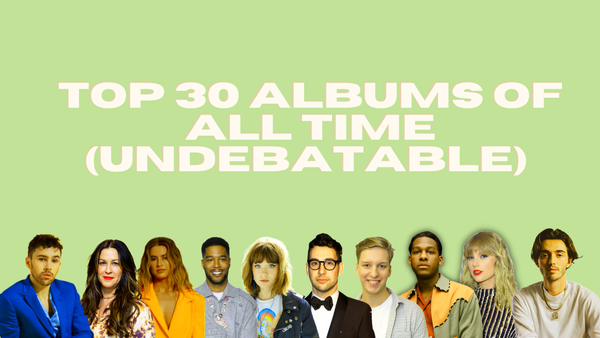Aurora Aksnes (or simply AURORA as she is mononymously known to her fans) is a 20-year-old girl from Norway with a water nymph aesthetic who also happens to be a talented synthpop singer. She first started gaining traction last November when her ethereal cover of the Oasis song “Half The World Away” appeared in the annual Christmas advertisement for British department store John Lewis. This cover was received with mixed reactions, including criticism from Scottish music executive Alan McGee and praise from pop star Katy Perry. While the original Oasis version of “Half The World Away” was very guitar-centric, AURORA’s cover is far more stripped-back and instrumentally subdued so that the singer’s breathy, melancholy vocals can shine through.
In March, AURORA released her debut full-length album,"All My Demons Greeting Me As A Friend." The album is dark and contemplative with Aksnes’s aerated singing voice woven through each track, lightly haunting the pieces like a ghost. There are 12 tracks in total on the standard edition and 17 on the deluxe edition, which includes the singer’s previously released cover of “Half The World Away” in addition to a few other extras. Throughout the album, AURORA’s lyrics range in emotion from the relieved “Not anybody knows that I am lucky to be alive” in “Lucky” to the glum “Broken mornings, broken nights, and broken days in between” to the downright morbid “I know he knows that he’s killing me for mercy” in “Murder Song (5, 4, 3, 2, 1).” There is darkness contained within "All My Demons Greeting Me As A Friend" because music is a sort of catharsis or exorcism for Aksnes: “I started to write songs in the first place to help myself get through things,” she tells Andrew Hannah of the 405. Consequently, AURORA’s lyrics are not scattered or abstract — each song is purposeful, telling the story of a particular struggle, real or imagined.
AURORA is an impressive artist because she fosters contradictions. In her album’s opening track, “Runaway,” AURORA demands, “Take me home where I belong, I got no other place to go.” This lyric may sound like a complaint, but it seems that the young singer is, in fact, quite at home in her persistent loneliness: she has learned to accept it and even to use its beauty to fuel her music. AURORA's gentle, almost fragile voice is her greatest power, and her emotional weaknesses are her greatest strengths.





















